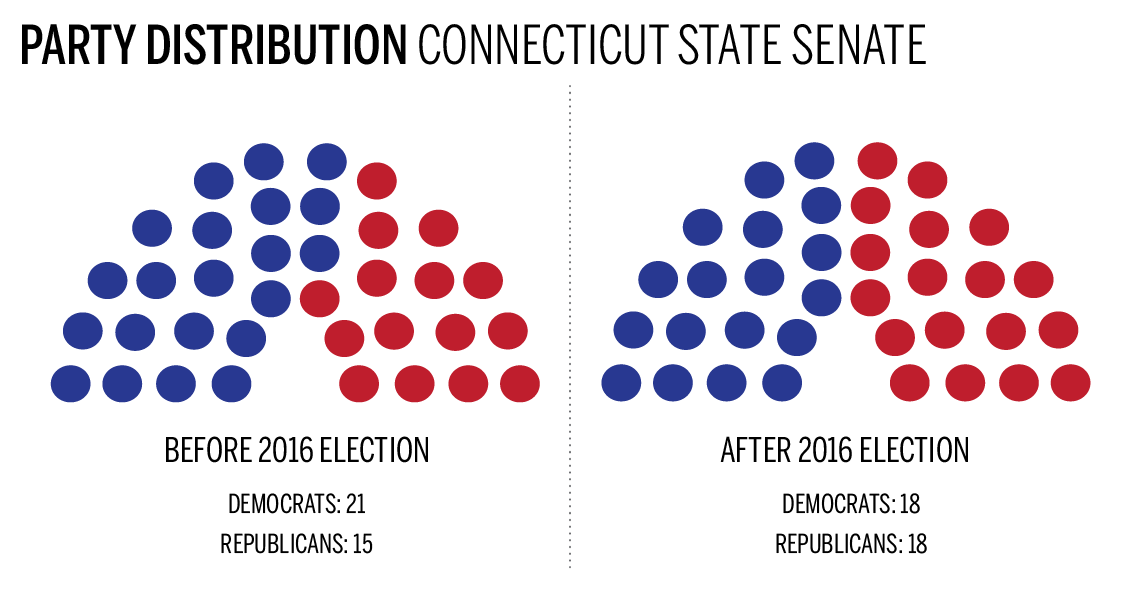
On Nov. 8, voters did not just elect Donald Trump as their new president — they voted for Republicans across the board, even in the traditionally blue Connecticut State Senate.
Though Sen. Richard Blumenthal LAW ’73, D–Conn., was re-elected with 63 percent of the vote, the 36-seat Connecticut State Senate is now split evenly between the two major parties — the first time this has happened since 1893. All 36 seats were up for election, and Republicans won three formerly Democratic seats to split it, 18–18.
Because Lieutenant Governor Nancy Wyman, a Democrat, will break any ties that occur in the Senate, Democrats maintain a technical majority. However, the Senate split demonstrates voter frustration with the current government and a desire for change.
“As Connecticut Senate Republicans gained three new seats, there is no longer a majority party in the state Senate,” said current minority leader Len Fasano ’81, R-North Haven, in a statement on his website. “We are now a chamber of equals. The old way of doing things is over.”
The Connecticut Senate is one part of the bicameral legislature that makes up the Connecticut General Assembly. The Senate has been majority Democrat since 1996, but next term, the even split in the Senate will be accompanied by a minor Democratic majority in the House. The 151-member House will be split 79–72 along party lines.
Connecticut resident and co-founder of the Yale New Republicans Michael Fitzgerald ’19 said the split Senate and the gains of the Republicans are related to Connecticut’s economic situation.
“Over the last few years the Democrats have created an environment that can be seen as hostile to businesses,” Fitzgerald said.
He added that Democratic Gov. Dannel Malloy could be a part of the reason why Democrats failed to hold their majority in the Senate.
Malloy was first elected in 2010, but since his re-election two years ago, his approval ratings have hit an all-time low. A June Quinnipiac University poll shows that only 24 percent of voters approve of Malloy’s government leadership.
“Voters feel Connecticut’s economy is going down the drain and they are sending Gov. Dannel Malloy’s approval ratings down the same drain,” Poll Director Doug Schwartz said in a statement to the CT Mirror. “Even Democrats disapprove of the way he is doing his job.
Malloy is blamed for tax raises and General Electric’s move from Fairfield to Boston — a move that many equate with Malloy’s failed fiscal policy. Now, as Fasano told FOX 61, the Republicans have “equal voice, equal power and equal policy making.”
However, this “equal power” may not always completely equal, given Democrats’ technical majority due to Wyman’s position as lieutenant governor. Despite this fact, Fitzgerald believes the Republicans will have a “larger voice,” especially when discussing fiscal policy.
Because the role of lieutenant governor is not completely clear, and such a Senate split has not occurred in the modern era, Fitzgerald said there are questions that will “need to be worked out and the process will definitely change.”
The Connecticut State Senate is one of 14 state Senates whose members serve two- rather than four-year terms.







